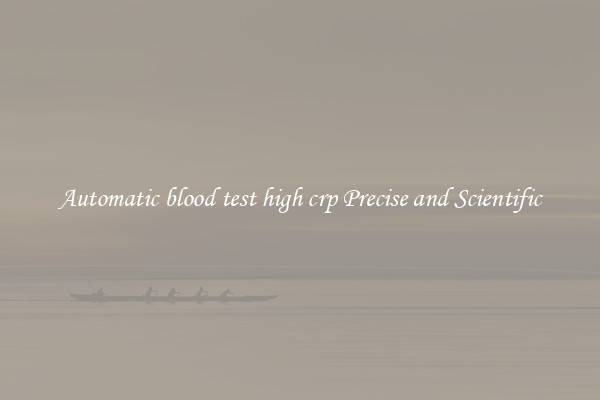Precision Data levels of oxygen in blood for Vitality
Precision Data Levels of Oxygen in Blood for Vitality

Oxygen is a vital element for the functioning of our body. Proper levels of oxygen in the blood are crucial for maintaining overall health and vitality. Precision data is now providing us with accurate measurements of oxygen levels, allowing us to monitor and manage our oxygen intake more effectively.
The measurement of oxygen levels in the blood is called oxygen saturation, commonly known as SpO2. It is expressed as a percentage and refers to the amount of oxygen being carried by the red blood cells. A healthy individual should have an SpO2 level of 95% or above. Anything lower than this may indicate hypoxemia, a condition characterized by insufficient oxygen supply to the body's tissues.
Precision data levels of oxygen in the blood are essential for a variety of reasons. First and foremost, they help healthcare professionals diagnose and treat various medical conditions. Low oxygen levels can be indicators of respiratory diseases such as asthma, chronic obstructive pulmonary disease (COPD), or even lung infections like pneumonia. Similarly, precision data can identify if a person has sleep apnea or other sleep-related breathing disorders.
Monitoring oxygen levels can also assist athletes and fitness enthusiasts in optimizing their workouts. During intense physical activity, the demand for oxygen increases, and a drop in SpO2 can indicate inadequate oxygen supply to the muscles. By tracking their oxygen levels, athletes can adjust their training routines, ensuring they are operating at their peak performance while minimizing the risk of overexertion.
For individuals with chronic conditions, such as heart disease or diabetes, precision data is invaluable. These conditions can affect the body's ability to circulate oxygen efficiently, leading to fatigue, dizziness, and other complications. Regular monitoring of oxygen levels can help manage these conditions and provide vital information to healthcare providers to make informed decisions about medication and treatment plans.
Precision data levels of oxygen in the blood can be obtained through various devices, such as pulse oximeters. These devices are non-invasive and painless, making it easy for individuals to measure their SpO2 levels at home. They are compact and portable, allowing for convenient monitoring on the go.
In conclusion, understanding and maintaining proper levels of oxygen in the blood is crucial for vitality and overall well-being. Precision data provides us with accurate measurements of oxygen saturation, enabling us to monitor our health more effectively. Whether managing a medical condition or optimizing physical performance, tracking oxygen levels offers valuable insights into our body's functioning. By utilizing precision data, we can take proactive steps to ensure we have the right amount of oxygen for a healthy and vibrant life.

View details

View details

View details

View details








